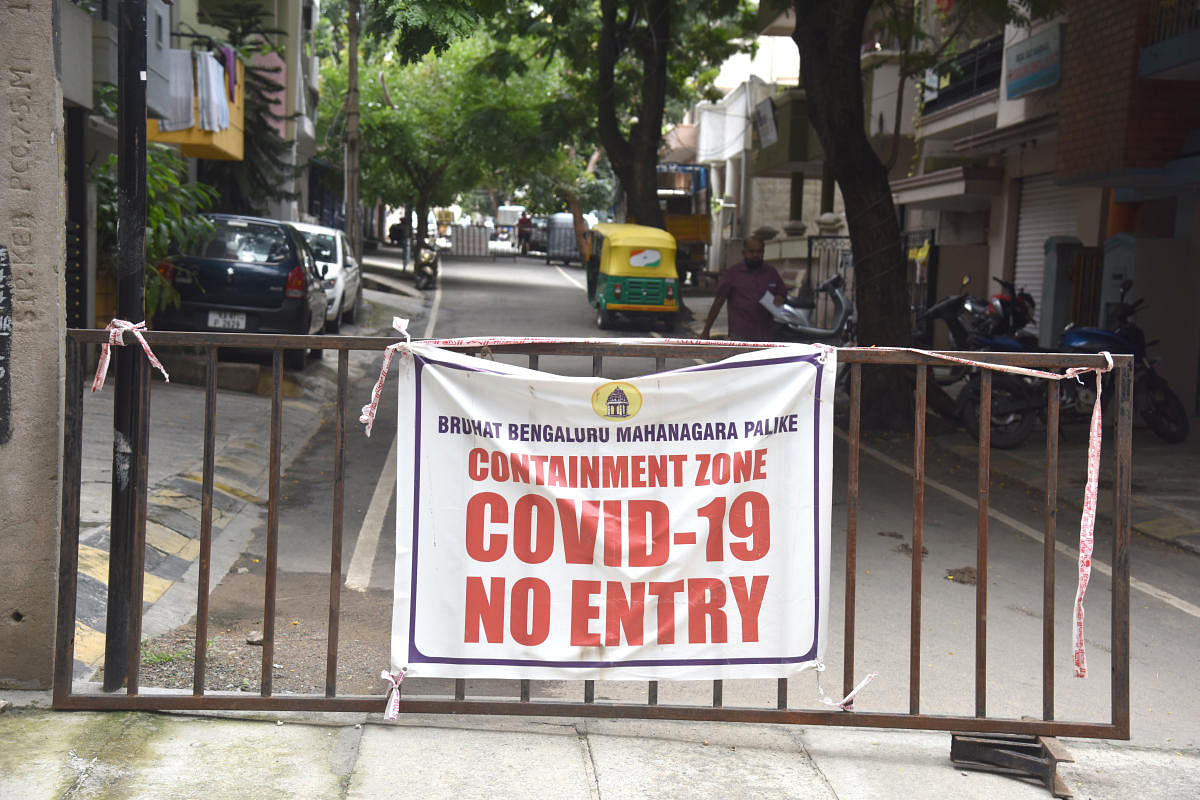
The city’s containment zones further increased to 167 on Saturday, with apartment buildings accounting for 46 per cent of them.
Data from the BBMP revealed that 293 of 610 positive cases in containment zones are currently apartment residents, with the highest burden of the disease being in the Bommanahalli Zone (80 cases in 19 apartments) and Mahadevapura Zone (102 cases across 28 apartments). Yelahanka Zone trails in the third position with 25 cases across eight apartments.
Bangalore Apartment Federation (BAF) general secretary Vikram Rai said the clusters are a result of the high population densities of these locations. The issue has placed the BBMP on the backfoot as its containment measures, such as placing some common areas off limits and focusing on interstate travellers, have not been wholly effective in curtailing outbreaks.
One problem in tracing interstate returnees is the challenge in determining who went on travel, RWA members explained. “It is not easy to identify a returnee unless there is a voluntary disclosure or if security sees them pulling up in an airport taxi,” Rai said.
In the meantime, the municipal authority said it is conferring with its expert committee to investigate the matter of airborne transmission of the novel coronavirus.
A suspected incident of airborne transmission is said to have transpired at the Renaissance Temple Bells apartment complex in the West Zone two weeks ago. Suspicions have also been tacked on sanitary pipes as a conduit for transmission.
Rai said the issue of transmission of the novel coronavirus through sanitary pipes was previously addressed by the Karnataka State Pollution Control Board. “The KSPCB said since drains are mixed mediums and can also contain chemicals such as detergents, the survivability of the virus in this environment is low."
Read | AIIMS Director points out why children will be 'more susceptible' if third Covid wave strikes
Meanwhile, the BAF said it is banking on high vaccination coverage to solve the problem. “In the over 45 age group, between 60-70 per cent have taken two doses. Among the 18-44 age group, a majority will be coming up for their second dose in September,” Rai said.
RT-PCR certificate clarification
The Palike’s RWA advisory issued on August 12 appeared to state that mandatory RT-PCR negative certificates are required from all interstate travellers.
However, BBMP’s Special Commissioner (Health) D Randeep issued a clarification.
"There was no statement given by the BBMP saying a mandatory RT-PCR certificate is required for anybody to enter the state. It is only for those people, of whatever origin or state, if they are traveling from Kerala or Maharashtra into the city of Bengaluru... then they need to have a mandatory RT-PCR negative certificate,” he said.